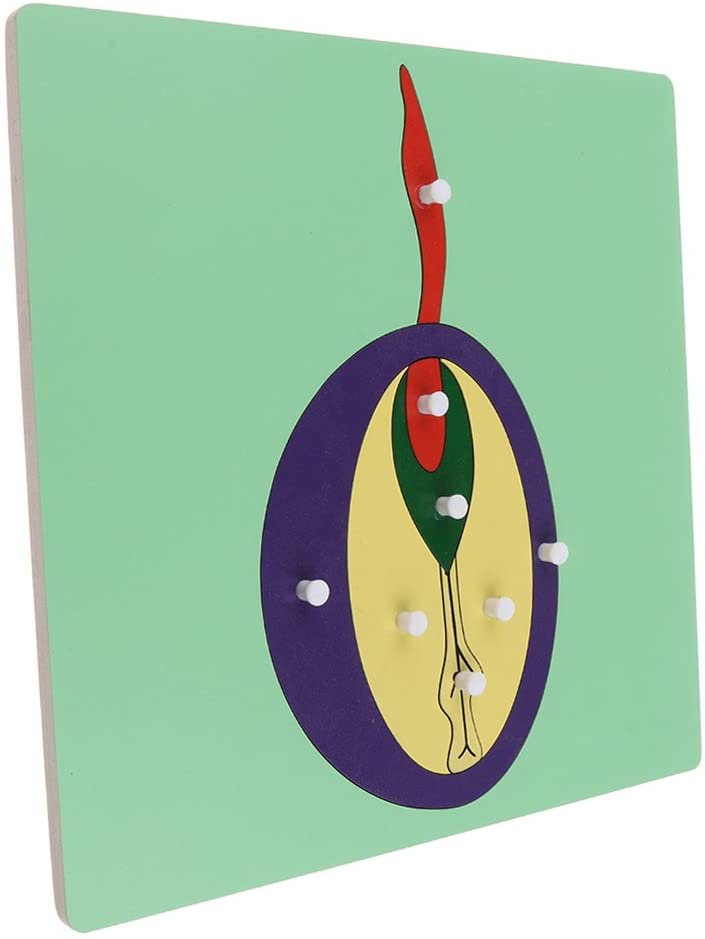1
/
of
5
Right To Learn
Montessori Elementary - All about SEED Package - Knobbed puzzle / 3 part Nomenclature cards
Montessori Elementary - All about SEED Package - Knobbed puzzle / 3 part Nomenclature cards
Regular price
$12.90 SGD
Regular price
$19.90 SGD
Sale price
$12.90 SGD
Unit price
/
per
Taxes included.
Couldn't load pickup availability
The package set contains
- Wooden Knob Anatomy Puzzle showing parts of a Seed
- Parts of a Seed Nomenclature cards - Laminated with round edges (PACKED IN PLASTIC BAG)
-5 control cards + 5 pictorial cards + 5 word labels (total 15 cards)
3. Package of Item 1 & 2
Item 1. : Puzzle: Description
- Fun and stimulates child’s interest in the natural world and help them identify the parts of the seed .
- Provides hands-on opportunity to learn the anatomical parts of the seed.
- Each puzzle piece has a wooden knob, which encourages both tactile and visual sensory skills and enhances fine motor skills.
- Child will use their finger in pincer grip to grab the knob, which indirectly prepares the child to holding a pencil for writing in the future.
- This is a self-correcting material, which encourages problem-solving skills, as child has to figure out independently on how to fix the pieces of the puzzle.
- It enhances the child’s eye hand co-ordination and gives the child a challenge to overcome.
Age: 3 years and above
Item 2: 3 Part Nomenclature Cards: Parts of a Seed
Description
- This is an extension from the Parts of a Seed puzzle. The puzzle was for visual learning now the child has progressed on to abstract.
- Child manipulates with these cards to internalize the information provided on the cards for example the different parts of the seed.
- It enhances the child’s concentration and eye hand coordination, as the child has to match the correct picture and word label to the control.
- It is an excellent tool to train matching skills and enhance on the child’s reading skills.
- It cultivates the curiosity to find out more information about the function of each part. For example, what is the epicotyl for?
Age: 3 years and above (Note: Child should be a beginning reader)
How to use: Presentation of Puzzle
- Begin with the puzzle.
- Remove each piece from the knob emphasizing on the pencil grip.
- Introduce the name of each piece by pointing at it. Ask child to show the parts as you name them. Point at the part and ask child, “What is this?” (Note: This is called the 3 Period Lesson in Montessori demonstrations.)
- Build the puzzle outside of the wooden tray.
- Build the puzzle back into the tray.
Presentation of 3 Part Cards
- Bring the puzzle to the mat, ask child to share about the puzzle.
- Inform child “Today we will be learning about the parts in detail.”
- Lay out the control cards (picture with word) from left to right on the top of the table or mat.
- Match the picture to the control. Repeat for word.
- Introduce the different parts by saying, “This is the epicotyl.” Repeat for all parts.
- Point the parts on the card to the puzzle. This helps the child make the connection from puzzle to card and makes it easier to progress from concrete to abstract.
- Ask child, “Show me the head.” Repeat for all parts. (Note: child to point at the part you are asking to show.)
- Point to the control card one at a time and ask, “What is this?” Repeat for all cards.
- In the next lesson ask child to lay the cards and match the control card with the corresponding picture and word cards.
- If child is able to name 50% of the parts correctly it will be good to share the function of the parts. This enhances on the child’s general knowledge.
Share











